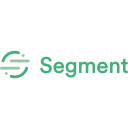Segment vs Amplitude: Which data analytics tool is right for your business?
- 01Segment vs Amplitude: overview
- 02What's the difference between Segment and Amplitude?
- 03Segment pros and cons
- 04Amplitude pros and cons
- 05Segment compared to Amplitude
- 06Amplitude compared to Segment
- 07Features comparison
- 08Segment vs Amplitude: Which is the best for your business?
- 09Promotions on Cloud And Data Management software
- 10Alternatives to Segment & Amplitude
Access up to $50,000 savings on Segment & $183 on Amplitude
Access up to $50,000 savings on Segment & $183 on Amplitude
Understanding your customers' behaviors, optimizing user experiences, and making data-driven decisions are crucial for businesses looking to grow and thrive in today's competitive landscape. However, collecting, managing, and analyzing customer data across various channels can be challenging without the right tools. This is where customer data platforms (CDPs) come in, offering powerful features to centralize and make sense of your data.
With many options available, selecting the right CDP can be overwhelming. In this article, we compare two popular solutions—Segment and Amplitude. By exploring their features, pricing models, and key differences, you'll gain the insights needed to decide which platform best aligns with your business objectives and data strategy.
Segment vs Amplitude: overview
Segment and Amplitude are two leading contenders in the customer data platform (CDP) and data analytics software categories, each offering a distinct set of features tailored to meet the diverse needs of businesses aiming to harness the power of data.
Segment is celebrated for its ability to seamlessly collect, unify, and route customer data across various touchpoints. Its robust integrations, real-time data pipelines, and intuitive interface make it an ideal choice for businesses looking to build a solid data foundation. On the other hand, Amplitude is renowned for its powerful product analytics capabilities that allow businesses to deeply understand user behavior and optimize their product experiences.
Now, let's dive into the Segment vs. Amplitude comparison to help you determine which platform best aligns with your data management, analytics, and overall business objectives.
What's the difference between Segment and Amplitude?
Segment and Amplitude are two prominent platforms in the data analytics space, catering to businesses seeking to optimize their customer data management and product analytics. Both tools offer powerful features, but they serve distinct purposes, which can influence your decision depending on your business needs.
The primary difference between Segment and Amplitude lies in their core functionalities. Segment is a customer data platform (CDP) designed to collect, unify, and distribute data across various systems. Its strength lies in its ability to act as a central hub for customer data, providing businesses with a single source of truth. Segment excels in data integration, offering over 300 pre-built integrations that make it easy to connect different tools, such as CRMs, analytics platforms, and marketing automation systems. This makes Segment ideal for companies that need to manage large volumes of customer data and ensure that data flows seamlessly between systems.
On the other hand, Amplitude is a product analytics platform focused on helping businesses understand user behavior within their products. Amplitude offers advanced analytics features such as behavioral cohort analysis, user journey tracking, and predictive analytics, enabling companies to deeply analyze how users interact with their products. This level of insight is invaluable for product teams aiming to optimize user engagement, retention, and conversion. Unlike Segment, Amplitude is not designed to manage or route data between systems but rather to provide detailed insights from the data it collects directly from user interactions.
Another key difference is in their pricing models. Segment typically charges based on the number of data sources and events processed, which can scale quickly depending on your data volume. Amplitude, on the other hand, often bases its pricing on the number of user actions tracked, making it a more straightforward choice for businesses focused specifically on product analytics.
In summary, while Segment and Amplitude both offer robust data capabilities, they serve different purposes. Segment is best suited for businesses looking to streamline and unify their customer data across multiple platforms, making it easier to manage and utilize this data. Amplitude, however, is ideal for companies that need in-depth product analytics to understand user behavior and optimize product experiences.
Segment pros and cons
What are the advantages of Segment?
- Comprehensive data integration: Segment offers robust data integration capabilities with over 450 pre-built integrations, allowing businesses to easily connect various tools and platforms, such as CRMs, analytics, and marketing automation systems. This creates a unified view of customer data across the organization.
- Ease of use: Segment is known for its user-friendly interface and straightforward setup, making it accessible even for teams without extensive technical expertise. This ease of use helps companies quickly implement and start benefiting from the platform.
- Real-time data processing: Segment processes data in real-time, enabling businesses to act on customer insights immediately. This is particularly useful for real-time personalization, customer support, and targeted marketing campaigns.
- Single source of truth: By centralizing customer data from various sources, Segment helps ensure that all teams within an organization are working from the same, accurate data. This reduces discrepancies and improves decision-making.
- Privacy and compliance: Segment includes features to help businesses comply with data privacy regulations like GDPR and CCPA. It offers tools for managing data consent, ensuring that customer data is handled responsibly.
What are the disadvantages of Segment?
- Cost: Segment can become expensive, especially for companies with a large number of data sources or high data volumes. The costs can quickly escalate as businesses scale, making it less affordable for smaller companies.
- Learning curve for advanced features: While the basic setup is user-friendly, mastering Segment's more advanced features, such as custom integrations and complex data transformations, can require significant time and expertise, particularly for less technical teams.
- Dependency on third-party integrations: Segment’s value is heavily reliant on its integrations with third-party tools. If an integration is not available or becomes deprecated, businesses may face challenges in maintaining their data flow and consistency.
- Limited native analytics: Unlike dedicated analytics platforms, Segment does not provide in-depth data analysis or visualization tools out of the box. Businesses often need to integrate Segment with other analytics tools to gain detailed insights, which can add complexity.
- Potential data latency: While Segment processes data in real-time, there can occasionally be latency issues, particularly with large data volumes or during peak usage times. This could impact the timeliness of data-driven decisions.
Compare Segment to other tools
Amplitude pros and cons
What are the advantages of Amplitude?
- Advanced product analytics: Amplitude excels in providing in-depth product analytics, offering features like behavioral cohort analysis, user journey mapping, and funnel analysis. These tools help businesses gain a deep understanding of user behavior, making it easier to optimize product experiences and improve user engagement.
- User-friendly interface: Amplitude is designed with an intuitive and user-friendly interface, which allows product and growth teams to easily access and analyze data without requiring extensive technical knowledge. This democratizes data insights across the organization.
- Real-time analytics: Amplitude processes data in real-time, enabling businesses to quickly react to user behavior and make data-driven decisions. This is particularly valuable for monitoring product launches, A/B tests, and other time-sensitive initiatives.
- Powerful segmentation: Amplitude offers robust segmentation capabilities, allowing businesses to create highly specific user segments based on behavior, demographics, or other criteria. This helps in tailoring product experiences and marketing efforts to different user groups.
- Collaborative features: Amplitude includes collaborative tools that allow teams to share insights, create dashboards, and work together on data-driven projects. This fosters cross-functional collaboration and ensures that all teams are aligned on product metrics and goals.
What are the disadvantages of Amplitude?
- Cost: Amplitude’s pricing can be high, especially for larger organizations or those with extensive data needs. While it offers a free tier, advanced features and higher data volumes can quickly lead to significant costs, which might be prohibitive for smaller companies.
- Steep learning curve for complex features: While basic usage is straightforward, Amplitude's more advanced features, such as custom event tracking and complex queries, can have a steep learning curve. This might require additional training or support, particularly for non-technical users.
- Limited integration with non-product data: Amplitude is primarily focused on product analytics, which means it may not integrate as seamlessly with non-product data sources like marketing or sales platforms. This can be a limitation for businesses looking for a more comprehensive view of their customer journey.
- Data sampling in free tier: Amplitude’s free plan includes data sampling, which might lead to incomplete or skewed data insights for businesses with larger user bases. This can limit the accuracy of analysis, especially for detailed or granular reports.
- Dependency on quality data input: The effectiveness of Amplitude heavily depends on the quality and accuracy of the data being fed into the system. Poorly defined events or inaccurate data can lead to misleading insights, which can negatively impact decision-making processes.
Compare Amplitude to other tools
Segment compared to Amplitude
Segment and Amplitude serve distinct but complementary roles in data management and analytics. Segment excels as a customer data platform, centralizing and routing data across various tools, making it ideal for businesses needing to streamline data integration and ensure consistency. In contrast, Amplitude focuses on product analytics, offering deep insights into user behavior and product engagement.
While Segment is best for unifying customer data from multiple sources, Amplitude shines in providing actionable product insights. Businesses often use Segment for data infrastructure and Amplitude for detailed product analytics, leveraging the strengths of both platforms together.
Is Segment better than Amplitude?
Determining whether Segment is better than Amplitude depends on your specific needs. Segment is unparalleled for businesses seeking to centralize and integrate customer data across diverse tools and platforms. Its strength lies in data unification, ensuring that all customer interactions are consistently captured and routed.
On the other hand, Amplitude excels in delivering in-depth product analytics, offering detailed insights into user behavior, engagement, and product performance. If your focus is on data integration and management, Segment will likely be the better choice. However, for advanced analysis of user interactions and product optimization, Amplitude's specialized capabilities make it the superior option.
What is Segment best used for?
Segment is best used as a customer data platform (CDP) that centralizes, organizes, and routes customer data across various tools and systems. It excels in creating a unified view of customer interactions by collecting data from multiple sources—such as websites, apps, and servers—and sending it to integrated tools like CRMs, analytics platforms, and marketing automation systems.
This makes Segment invaluable for businesses that need to ensure consistent, accurate, and real-time data across their entire tech stack, enabling personalized customer experiences, targeted marketing, and more informed decision-making based on reliable data.
Can Segment replace Amplitude?
Segment cannot fully replace Amplitude, as the two platforms serve different purposes. Segment is primarily a customer data platform (CDP) focused on collecting, unifying, and routing data across various systems, ensuring data consistency and integration. In contrast, Amplitude is a product analytics tool designed to provide deep insights into user behavior and product engagement.
While Segment can send data to Amplitude and other analytics tools, it lacks the specialized analytics features that Amplitude offers. Therefore, Segment and Amplitude are often used together, with Segment handling data infrastructure and Amplitude focusing on detailed product analytics.
Is Segment cheaper than Amplitude?
Whether Segment is cheaper than Amplitude depends on your specific use case and data needs. Segment’s pricing is typically based on the number of data sources, events processed, and integrations, which can become expensive as your data volume grows. Amplitude’s pricing, on the other hand, is often based on the number of user actions tracked and the features you need.
For businesses with high data volumes or complex integration needs, Segment might be more costly. However, if you require advanced product analytics, Amplitude’s specialized features might justify its cost despite potentially higher pricing in those areas.
Is there a better Cloud And Data Management software than Segment?
When evaluating customer data platforms (CDPs), it's essential to consider whether there might be a software alternative that better suits your specific needs than Segment.
Notable alternatives to Segment include Amplitude, Mixpanel, Google Analytics, Bloomreach, and Adobe Experience Platform.
The choice of a CDP depends on your business's unique data management requirements, the complexity of your data sources, integration needs, and budget constraints. While Segment is highly regarded for its robust data integration capabilities, ease of use, and extensive pre-built integrations, other platforms may offer more specialized analytics, stronger data governance features, or specific capabilities that better align with your overall data strategy and business objectives.
$50,000 in credits for 1 year on Segment
Get $50,000 in credits for 1 year on Segment and up to $50,000 savings with Secret.
Amplitude compared to Segment
Amplitude and Segment serve complementary but distinct roles in data management and analytics. Amplitude excels as a product analytics platform, providing deep insights into user behavior, product engagement, and user journeys, making it ideal for optimizing digital experiences.
Segment, on the other hand, is a customer data platform (CDP) focused on collecting, unifying, and routing data across various systems to create a centralized, consistent data source. While Segment manages and organizes data flow across your tech stack, Amplitude analyzes that data to offer actionable insights into how users interact with your products. These tools are often used together for comprehensive data-driven decision-making.
Is Amplitude better than Segment?
Determining if Amplitude is better than Segment depends on your specific objectives. Amplitude shines in its ability to provide deep, actionable insights into user behavior and product engagement, making it ideal for optimizing user experiences through detailed analytics. It excels in tracking and analyzing how users interact with your product, which is essential for enhancing product features and performance.
However, Segment’s strength lies in its role as a customer data platform that centralizes and integrates data from various sources. If your primary need is advanced product analytics, Amplitude offers superior capabilities. For comprehensive data integration and unification, Segment remains essential.
What is Amplitude best used for?
Amplitude is best used for in-depth product analytics, helping businesses understand user behavior and optimize digital experiences. It excels in tracking and analyzing user interactions within a product, providing insights into user journeys, retention rates, and conversion paths.
Amplitude's powerful features, such as behavioral cohort analysis, funnel analysis, and user segmentation, make it particularly valuable for product teams looking to improve user engagement and drive growth. By offering detailed visibility into how users interact with a product, Amplitude enables data-driven decisions that enhance user experience and product performance.
Can Amplitude replace Segment?
Amplitude cannot fully replace Segment, as the two platforms are designed for different purposes. Amplitude is a product analytics tool focused on providing deep insights into user behavior and product interactions, helping businesses optimize user experiences. Segment, on the other hand, is a customer data platform (CDP) that collects, unifies, and routes data across various systems, ensuring consistent and accurate data flow.
While Amplitude excels in analyzing product data, it lacks the comprehensive data integration and management capabilities of Segment. Therefore, businesses often use both platforms together, with Segment handling data infrastructure and Amplitude focusing on detailed analytics.
Is Amplitude cheaper than Segment?
Whether Amplitude is cheaper than Segment depends on your specific use case and the scale of your data needs. Amplitude's pricing is generally based on the number of user actions tracked and the features required, which can make it more cost-effective for businesses focused solely on product analytics.
Segment, however, charges based on the volume of data sources, events, and integrations, which can become expensive as data complexity and volume grow. For businesses with extensive data integration needs, Segment’s pricing plans might be more costly. In contrast, Amplitude may offer a more budget-friendly option if advanced product analytics is the primary requirement.
Is there a better Data Analytics software than Amplitude?
When considering alternatives to Amplitude, it's essential to evaluate whether another platform might better suit your specific product analytics and data needs.
Notable alternatives to Amplitude in the product analytics and customer insights space include Segment, Pendo, Howuku, FullStory, and Google Analytics.
The choice of a product analytics platform depends on your business objectives, the depth of analysis required, and the tools you need for user behavior tracking. While Amplitude is renowned for its powerful product analytics and user journey insights, other platforms may offer advantages in certain areas, such as more intuitive interfaces, specialized features for specific industries, lower pricing tiers, or better integration with particular data environments.
25% off the Growth plan for 1 year on Amplitude
Get 25% off the Growth plan for 1 year on Amplitude and up to $183 savings with Secret.
Features comparison
Segment Excels Over Amplitude in Server-Side Data Collection
Segment outshines Amplitude when it comes to collecting data from servers. Its unique capability to gather server-side data and pass it seamlessly to other tools in real-time provides a significant advantage for businesses needing comprehensive server-side event analysis. For instance, Segment’s integration with server-side data sources allows for the efficient tracking of backend events like API calls, user authentication, and server errors, which are crucial for understanding the full user journey.
In contrast, while Amplitude offers robust data management and analytics, it is less specialized in server-side data collection. Amplitude focuses more on client-side interactions and product usage analytics, making Segment the superior choice for businesses requiring detailed insights from server-side data.
Segment Edges Out Amplitude in Integration Capabilities
In terms of integration capabilities, both Segment and Amplitude offer robust possibilities that enable businesses to connect with a multitude of essential tools. However, Segment manages to edge out Amplitude in this comparison by offering an astounding library of over 450 integrations. This extensive list includes vital CRM systems, communication software, and other business tools like Google Analytics, Zendesk, Salesforce, Slack, and Marketo, among others, providing users with the flexibility to connect virtually any part of their tech stack seamlessly.
On the other hand, while Amplitude supports a wide-ranging variety of integrations, including major platforms like AWS, Adobe Analytics, and Shopify, its selection falls short compared with Segment's extensive repertoire. Segment's vast array of integrations allows users to merge their existing workflows more efficiently, reducing friction and accelerating the pace at which they can achieve business milestones. This advantage makes Segment particularly appealing for businesses that require comprehensive data connectivity across diverse platforms.
Segment Outshines Amplitude in E-Commerce Customer Behavior Tracking
Segment is better at tracking customer behavior across e-commerce sites than Amplitude, offering specialized capabilities that cater directly to the unique needs of online retailers. With Segment, businesses gain access to a powerful toolset specifically designed to track intricate customer interactions, such as product views, cart additions, and purchase completions, across e-commerce platforms like Shopify, Magento, and WooCommerce. This allows companies to optimize the shopping experience by personalizing recommendations, streamlining the checkout process, and reducing cart abandonment rates.
While Amplitude does provide robust behavior tracking, its focus is more generalized and geared towards broader product analytics, making it less tailored for the e-commerce environment. This difference makes Segment particularly valuable for businesses aiming to enhance their online shopping experience through detailed, e-commerce-specific insights.
Amplitude Excels Over Segment in User-Friendliness
When it comes to user-friendliness, Amplitude takes the lead compared to Segment. Amplitude is designed with a more intuitive interface, making it easier for product managers, data analysts, and non-technical users to navigate and extract meaningful insights. For instance, setting up behavioral cohort analysis or creating custom dashboards in Amplitude can be done with minimal technical expertise, allowing teams to quickly leverage data for decision-making.
In contrast, while Segment offers robust data integration capabilities, its setup and configuration often require more technical knowledge, especially when dealing with custom data pipelines or complex integrations. This makes Amplitude a more accessible option for teams looking to gain immediate value from their data without the need for extensive setup or coding expertise.
Amplitude Leads in A/B Testing Compared to Segment
Amplitude is superior in A/B testing compared to Segment, offering a powerful feature that helps businesses rapidly determine what strategies resonate best with their users. Amplitude’s A/B testing capabilities allow for the creation and analysis of different versions of a feature or interface, providing insights into which variations lead to better user engagement or conversion rates. For example, businesses can test different user onboarding flows or UI designs to see which version performs better.
While Segment excels in tracking and integrating user data across various platforms, it does not include built-in A/B testing features. This makes Amplitude a more effective choice for companies focused on experimenting with and optimizing user experiences through rigorous testing and data-driven insights.
Segment and Amplitude Offer Comparable Strengths in Data Management
Both Segment and Amplitude excel in their respective areas of unified contact files and data management. Segment is highly effective at centralizing and unifying user data from multiple sources into a single, cohesive profile. This allows businesses to maintain a comprehensive view of each customer’s interactions and attributes, facilitating better decision-making and personalized experiences.
On the other hand, Amplitude offers advanced features for data management, including robust security measures and access controls. For instance, Amplitude ensures data integrity and protection through encryption and role-based access controls, making it suitable for sensitive data environments. While Segment focuses on creating a unified customer profile, Amplitude emphasizes secure and effective data handling, making both tools strong in their domains.
Amplitude Outperforms Segment in Personalized Recommendations
Amplitude excels at delivering personalized recommendations compared to Segment, thanks to its advanced analytics and machine learning capabilities. By analyzing user behavior and engagement patterns, Amplitude enables businesses to tailor interactions and product suggestions on a highly individualized level. For example, Amplitude can dynamically adjust recommendations based on a user’s browsing history and previous interactions, enhancing the relevancy of offers and increasing conversion rates.
In contrast, while Segment provides real-time audience segmentation and integrates data across platforms, it does not offer the same depth of personalization features. Segment focuses more on data integration and flow, making Amplitude the superior choice for businesses seeking sophisticated personalization in their customer interactions.
Subscribe to our newsletters.
No FOMO here. Stay up-to-date on all the latest deals and news with our monthly newsletter straight to your inbox like 112,000+ entrepreneurs (+ Get 10% off on on our Premium Membership!)
Segment vs Amplitude: Which is the best for your business?
Segment is the best tool for you if:
- You need to consolidate data from multiple sources into a single, unified profile, allowing for seamless integration with various marketing and analytics tools.
- You require real-time data processing and routing, ensuring that customer interactions and events are immediately available for analysis and personalized marketing efforts.
- Your business relies on integrating data across diverse platforms, such as CRMs, e-commerce systems, and email marketing tools, to create a comprehensive view of customer behavior.
- You want to enhance data consistency and accuracy across your tech stack, avoiding discrepancies by centralizing data collection and synchronization in a single platform.
- You need a scalable solution that grows with your business, offering flexible pricing plans and extensive integration options to accommodate increasing data volumes and complexity.
Amplitude is the best tool for you if:
- You need advanced product analytics to understand user behavior, track key metrics, and optimize product features based on detailed insights into user interactions.
- You want powerful A/B testing capabilities to experiment with different product variations and determine which changes drive better user engagement and conversion rates.
- You require in-depth funnel analysis to track user progress through various stages of your product, identify drop-off points, and improve overall user retention.
- You need sophisticated cohort analysis to segment users based on behavior or attributes and evaluate the performance and engagement of different user groups over time.
- You seek real-time analytics to monitor user activity and product performance continuously, allowing for rapid response to trends and immediate adjustments to strategies.
Alternatives to Segment & Amplitude
Promotions on Cloud And Data Management software
Start saving on the best SaaS with Secret.
Secret has already helped tens of thousands of startups save millions on the best SaaS like Segment, Amplitude & many more. Join Secret now to buy software the smart way.













